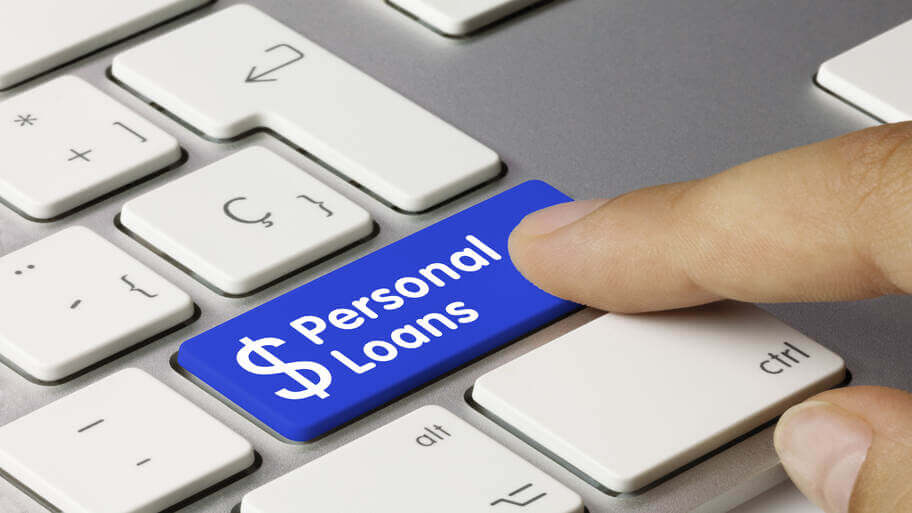A personal loan is any money that you borrow for your use. You can use it up or make investments. What matters is that you repay it according to the agreed terms. Often, the repayment is in monthly installments at a given rate. To get the best deal you need to know your personal loan options.
Before You Take a Personal Loan
Taking a personal loan is a big decision that might affect your future cash flow. For example, the loan’s repayment may become a burden, forcing you to default. This possibility is why you should consider the following factors before taking a personal loan.
1) Checking Your Credit Score
Your credit score determines the amount of loan you receive and the payment rate. If your score is low, you are bound to get expensive loans, and you are better off postponing the loan to build your score. Standard credit score-based personal loans include:
-
-
-
- 592 credit score personal loan. This score is bad credit, and your average loan interest rate would vary between 28.5% and 32%.
- 480 credit score personal loan. This score falls in the same category as 592. If you have this score and the loan is not urgent, you should consider working on your credit immediately.
- 524 credit score personal loan. 524 is still a bad credit and falls in the same category as 480 and 592. The same interest rate applies for a 591 credit score personal loan.
- 662 credit score personal loan. 662 is an average credit score that has an interest rate of 17.8% to 19.9%. Notice that the difference between bad and average interest rates ranges from 11.3% to 12.1%. This difference shows that you can save money in the long term by improving your credit score. A credit score of 662 also qualifies you for the following best personal loans in November 2021:
- Borrowing $1,000-$40,000 from LendingClub at an interest rate of 7.04% to 35.89%.
- Borrow joint loans of $2,000-$45,000 from Prosper.
- A range of repayment terms when you borrow from Discover. The loan conditions include an APR range of 5.99%-24.99%.
-
-
2) Shopping For Loan Options
It is wise to compare your loan options and find the ideal APR and repayment terms. Do not just settle for the first offer you see.
3) Finding a Co-Signer
When you need an urgent personal loan and your credit score is terrible, consider finding a co-signer with good credit to boost your rates and creditworthiness. The co-signer would take on the responsibility of repaying the loan alongside you.
4) Secure the Loan
Sometimes all it takes is a car, savings account, or other assets to secure your loan. These items may get you lower interest rates at the risk of losing them when you default on the loan.
5) Assessing Your Financial Status
Ensure that you are capable of repaying the loan before borrowing it. If borrowing will add to your financial strain, investigate your debt-relief options or consider consulting a financial advisor.
6) Application Fee
Some lenders charge an application or process fee. Ask about these charges and if they exist, inquire the amount.
7) Late Fee
Once in a while, you may be late in your loan repayment. Most lenders will charge you a late fee, a flat amount, or a percentage of the due payment. Others won’t charge you. It is better to know if you will incur such costs during the loan’s life.
8) Origination Fee
Origination fees are standard, and most lenders charge it a percentage of the loan or a flat rate. Your goal is to minimize this fee.
9) Repayment Terms
The thing about loan repayments is that you cannot take them at their face value. For example, longer repayment terms tend to have lower monthly payments and more interest. Calculate the total repayment and see whether you are willing to pay the interest amount.
How Does COVID-19 Impact Personal Loans?
COVID-19 disrupted the global economy, increasing the need for private loans across the world. But those with bad credit are having it worse than others, as lenders tighten their loan requirements.
Some lenders also offer small-dollar loans for individuals who are dealing with financial losses. If you are going to take a personal loan amidst the ongoing pandemic, inquire about the hardship options that your lender offers.
Reasons to Get a Personal Loan
The reasons for getting a personal loan may vary depending on individual needs. For instance, many people take personal loans to consolidate their debts, improve their homes, or pay for weddings.
How to Choose the Best Personal Loan
The best personal loan is the one with the lowest APR and friendly terms. Assess whether you can repay the loan’s monthly installments without interfering with your budget or the loan becoming a burden.
You can also inquire about the loan’s deferral or change of payment. If you are consolidating the loan, consider a lender that sends the loan proceeds directly to the creditors.
The following are the top online personal loan lenders that you should consider borrowing from based on your credit score:
-
-
- If you have a score of 720 and above, check out Discover, Lightstream, Marcus, or SoFi. These lenders will give you autonomy over your repayment options.
- If your score is between 690 and 719, check out Best Egg, FreedomPlus, LendingClub, Payoff, Prosper, or Rocket Loans. These lenders provide fast and joint loans and credit-building features that can potentially boost your score.
- If your credit score is below 690, consider LendingPoint, OneMain, Universal Credit, Upgrade, or Upstart. These lenders provide the best services for joint and secured loans, debt consolidation, and AI-powered underwriting.
-
How to Get a Personal Loan
When you decide about getting a personal loan, ask your lender for pre-qualification and estimated loan rates. The pre-qualification will show you the amount and interest you would get from the loan and allow you to shop around with specific figures in your mind.
You can also check out your local bank’s or credit union’s loan options. These lenders tend to have the best offers. You can then compare your loan offers using tools online.
Featured Image: Megapixl








